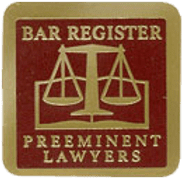Our Results Speak For Themselves
Over $500 Million Dollars
in Settlements Recovered for Our Clients
$95 Million
Highest Verdict Obtained
190+ Combined Years of Experience
Serving the Lehigh Valley and Pennsylvania
What Our Clients Say About Us
Cases We Handle
Awards & Recognition

How We Serve Residents in the Lehigh Valley and Pennsylvania
At Cohen, Feeley, Altemose & Rambo, our personal injury lawyers are passionate about helping victims of injury get the compensation and consideration they deserve. Recovery can already be a long and overwhelming journey, which is why we fight relentlessly for the compensation that can provide financial stability during this unpredictable time.
Our Lehigh Valley injury lawyers have decades of experience and a proven track record of success. We want to help our fellow Pennsylvanians, and we have what it takes to get the job done. With us to handle the legal complexities, insurance companies, and pursuit of justice, you can focus on what really matters most: recovery.
Confronting the aftermath of an accident can be overwhelming, but our personal injury attorneys are here to guide you through this challenging time. We provide knowledgeable advice based on our combined 190 years of experience, helping our clients build the strongest case possible to pursue the compensation they need.
A win for our clients isn’t just a win for us — it’s a win for our community as a whole. Each case we take is an opportunity to make our community a safer place. Our team includes everyone from car accident lawyers to workers’ compensation lawyers, and they’re all ready to help. Schedule a free consultation today to see how our team can support your case.
How Cohen, Feeley, Altemose & Rambo Can Help With Personal Injury Cases
With decades of experience and a passion for justice, our Pennsylvania personal injury lawyers can help guide you through the claims process.
Knowledgeable Legal Guidance
With our experienced team of Pennsylvania personal injury attorneys by your side, you can trust that you will receive the guidance you need at every stage in pursuing your claim.
Advocacy with Relevant Parties
Let our accident lawyers handle the negotiations on your behalf, safeguarding your interests and protecting your rights.
Pursuing Fair Compensation
Our catastrophic injury attorneys will diligently assess your situation and strive to secure a fair settlement by negotiating with the responsible parties.
Cohen, Feeley, Altemose & Rambo's Vision
Our mission is to protect the rights and well-being of those who have suffered from personal injuries. Our Pennsylvania personal injury attorneys have a combined 190 years of experience handling the most complex cases. From catastrophic accident injuries to workers' comp to wrongful death claims, we're there when the fight is too big to handle on your own.
At Cohen, Feeley, Altemose & Rambo, we're committed to protecting our fellow PA residents when they suffer. Whether you were harmed through negligence or malicious intent, we work hard to hold the guilty parties accountable.

Let Us Put Our Experience to Work for You.
Request your no-obligation free consultation.
Latest News and Blogs
What Winning Looks Like
$95 Million Combined Medical Malpractice Verdict Awarded
Our team of personal injury lawyers represented multiple families, including individual verdicts for eight individuals killed by serial killer nurse, Charles Cullen, at St. Luke’s Hospital.
$22 Million Products Liability Settlement
Cohen, Feeley, Altemose & Rambo secured $22 million for approximately 105 clients who received defective DePuy metal-on-metal hip implants that then needed to be removed and replaced due to the defect.
$4.36 Million Construction Accident Verdict
Our personal injury attorneys in Pennsylvania secured an award of $4.36 Million for a 47-year-old man who suffered an above-the-knee amputation of his left leg as a result of a construction accident.
$3.75 Million Car Accident Settlement
Our car accident attorneys negotiated a $3.75 settlement for a 53-year-old man who was left with a brain injury and severe hip and pelvis fractures requiring multiple surgeries from a car accident.
$2 Million Products Liability Settlement
Our Pennsylvania products liability attorneys successfully sought a $2 million settlement for a 59-year-old man who suffered third-degree burns and blindness in one eye resulting from a defective product.

Personal Injury Lawyers in Pennsylvania
Frequently Asked Questions
What Is an Example of Personal Injury?
Other examples of personal injury cases can include:
If you’ve suffered an injury because of someone else’s actions, you may be entitled to compensation for medical bills, lost wages, and pain and suffering. Personal injury lawyers can examine your case and help you determine the compensation you may pursue.
How Do Personal Injury Claims Work?
Even if you don’t think you’re seriously injured, it’s important to see a doctor. Some injuries, like concussions, other brain injuries, and soft tissue damage, might not be immediately obvious.
Next, consult a personal injury attorney. A truck accident lawyer can help determine if you have a strong case and guide you through the process. Most personal injury attorneys offer free consultations to discuss the next steps and payment structures.
Your attorney can also gather medical records, accident reports, witness statements, and any other evidence to build your case. If you don’t have these documents, don’t worry — your lawyer will likely give you advice on how to obtain them.
The next step is to file an insurance claim. In many cases, personal injury claims begin with an insurance company. Your lawyer can negotiate with the insurer to try to reach a fair settlement. However, this can be difficult, as insurance companies generally try to avoid paying settlements.
If the insurance company offers a fair amount, you can accept the settlement and avoid a lawsuit. However, if the offer is too low, your attorney may advise filing a lawsuit for a number that more accurately reflects the damage done.
If this happens, the case may go to trial. However, many cases settle before reaching this stage, as insurance companies typically prefer to avoid the costs associated with a trial.
The goal of a personal injury claim is to recover compensation for medical expenses, lost wages, pain and suffering, and other damages. A Pennsylvania personal injury lawyer can help you fight for the maximum amount.
What Does a Personal Injury Lawyer Do?
They typically handle all communications with insurance companies, making sure their clients don’t accept lowball settlements. If negotiations fail, they can file lawsuits and represent clients in court.
Personal injury lawyers in Pennsylvania also work with medical experts, accident reconstruction professionals, and financial analysts to strengthen their claims. Their goal is to maximize compensation while guiding clients through the complex legal process and offering legal (and often emotional) support every step of the way. This compensation can help injury victims focus on recovery instead of legal battles.
What Kind of Cases Do Personal Injury Lawyers Handle?
A catastrophic injury lawyer may also handle product liability cases involving defective products that cause harm, as well as wrongful death claims for families who have lost a loved one due to negligence. Other areas include dog bites, nursing home abuse, and construction site accidents.
No matter what type of case they’re working on, a personal injury lawyer’s job is to prove fault and negotiate settlements or take cases to trial. Their knowledge helps victims receive the compensation they deserve.
Can I Switch Personal Injury Lawyers?
Switching lawyers won’t necessarily negatively impact your case, but it’s important to choose a replacement who is experienced and responsive. If you feel your current attorney isn’t advocating for your best interests, finding a lawyer who better meets your needs can make a significant difference in the outcome of your claim.
Of course, the best course of action is to find the best lawyer from the start. When you’re choosing a lawyer to represent your case, you don’t have to go with the first one you meet.
Instead, take the time to schedule a free consultation, read online reviews of their practice, and look up their track record of settlements and verdicts. Most importantly, make sure your lawyer has had experience with cases similar to yours so that they can present your claim as strongly as possible.
What Are Three Questions You Should Ask a Lawyer Before Hiring?
What Are Special Damages for Personal Injury?
Examples of special damages include:
Because special damages are based on concrete financial losses, keeping detailed records of your expenses can be key. Medical bills, pay stubs, repair estimates, and receipts all help prove the extent of your losses. If you're pursuing a personal injury claim, working with a personal injury lawyer can help ensure you recover the full amount of your economic damages.
What Are Noneconomic Damages in PA?
In Pennsylvania, noneconomic damages may include:
Since noneconomic damages don’t have a clear dollar amount, they are usually determined based on the severity of the injury and its impact on the victim’s daily life. Some insurance companies and courts use multipliers (for example, multiplying economic damages by a number between 1.5 and 5) to estimate pain and suffering; however, such multipliers are no longer the majority approach.
Pennsylvania does not have a cap on noneconomic damages in most personal injury cases, except in certain cases, such as lawsuits against the government. A first-rate personal injury lawyer can help you decide whether to pursue these types of damages and, if so, how much to request.
How Bad Does an Injury Have To Be To Claim?
Generally, an injury may justify a claim if you need medical treatment. Even minor injuries can lead to significant medical bills, especially if you need to go to the hospital for them to be addressed.
An individual may also have a claim if they have to miss work due to the injury. Even something as simple as a broken finger can drastically affect a person’s life and earning potential, depending on their job and the duties they’re expected to perform.
Ongoing pain, emotional distress, or a reduced quality of life can also strengthen a claim. This could be true for injuries such as whiplash, back pain, or traumatic brain injuries.
Finally, if you suffered permanent or long-term effects, such as scarring or disability, then you might be able to file a claim. These effects typically indicate a severe injury, which can help strengthen your case.
Even if your injury seems minor at first, it’s still worth consulting a personal injury attorney. Some injuries, like concussions or soft tissue damage, may worsen over time. Additionally, insurance companies may try to downplay an injury to avoid paying compensation, so it’s important to get a professional opinion before dropping your case.
If your injury resulted from someone else’s actions — whether a car accident, a slip and fall, or another incident — it’s always a good idea to seek legal advice. A personal injury lawyer can help you determine whether pursuing a claim is in your best interest.
How Long Do You Have To Make a Personal Injury Claim?
However, there are exceptions that can affect this time limit:
Even though two years might seem like plenty of time, it’s best to act quickly. Evidence can disappear, witnesses’ memories fade, and insurance companies may delay negotiations until the statute of limitations has expired. Speaking with a personal injury lawyer as soon as possible can help ensure your claim is filed on time and handled properly.
Do Most Personal Injury Cases Win?
Several factors impact whether a personal injury case is successful:
While there’s never a guarantee of success, many legitimate personal injury claims result in compensation. A strong case and an experienced personal injury lawyer increase the likelihood of receiving compensation, whether through settlement or trial.
How Long Does a Personal Injury Lawsuit Take in Pennsylvania?
Here’s a general breakdown of a hypothetical timeline:
Of course, many factors can affect the timeline of a case, so this will not be true for every claim; it’s merely a representation of a theoretical case. In general, scheduling a consultation with a personal injury attorney is the best avenue for learning your legal timeline.
One of the fastest ways to resolve a personal injury claim is through settlement. However, if an insurance company refuses to offer fair compensation, going to court may be necessary. While lawsuits take longer, they can result in larger payouts, particularly if your injuries are severe. An experienced personal injury lawyer can help you plan the best course of action.
Can You Sue for Pain and Suffering in PA?
Pain and suffering damages may include chronic pain, as in the case of whiplash, back pain, or traumatic brain injury. Emotional distress claims can include anxiety, depression, PTSD, or other mental health struggles caused by the accident. Finally, you may be able to claim a reduced quality of life if your injury prevents you from enjoying activities or affects your ability to work.
However, your ability to sue for pain and suffering depends on the type of insurance coverage involved. If you have full tort insurance, you can seek pain and suffering damages without restrictions.
If you have limited tort insurance, you can only recover these damages if your injuries meet Pennsylvania’s serious injury threshold. This usually requires you to demonstrate serious permanent disfigurement or serious impairment of a body function.
If another party’s negligence caused your injuries, you may be entitled to compensation for pain and suffering. A personal injury lawyer can evaluate your case and help you pursue the full amount you deserve. A Pennsylvania car accident attorney with Cohen, Feeley, Altemose & Rambo can also review your insurance declaration sheet so you know what your coverage is before an accident occurs.
How Much Can You Sue for Pain and Suffering in PA?
Pain and suffering damages are calculated as a jury sees fit. In fact, in Pennsylvania civil personal injury cases, you're not even allowed to ask for a particular amount.
There is no cap on pain and suffering damages in most personal injury cases in Pennsylvania, except for cases against government entities. However, insurance companies and defense attorneys may try to minimize these damages, which is why having an experienced personal injury lawyer is key.
Is PA a Full Tort State?
Limited tort coverage is cheaper but restricts your ability to sue for pain and suffering unless your injuries meet the serious injury threshold. Usually, this requires serious permanent disfigurement or serious impairment of a body function.
While Pennsylvania is not strictly a full tort state, full tort coverage gives you greater legal rights in the event of an accident. Limited tort coverage might make for cheaper monthly premiums, but it may also prevent you from receiving full compensation if you’re injured.
If you’ve been in an accident and are unsure whether your coverage allows you to seek damages for pain and suffering, consulting with a personal injury lawyer can help shed some light. They can review your insurance policy and determine the best course of action to maximize your compensation.
Is Full Tort Worth It in PA?
Here’s why full tort is often the better choice:
While limited tort may save a few hundred dollars per year on premiums, it can cost thousands — or even hundreds of thousands — in lost compensation if you’re injured. If you can afford it, full tort is generally the better choice to ensure you have the best legal protection.
What Are Punitive Damages in Personal Injury Cases?
Punitive damages are awarded when the defendant’s actions show willful misconduct, as in the case of an assault or intentional neglect of safety regulations.
They may also be awarded for reckless disregard. This describes extreme carelessness, such as a bar knowingly overserving a patron who later causes a severe accident or a construction site manager purposefully disregarding safety procedures.
Finally, you can be awarded punitive damages if the other party is found guilty of fraudulent or deceptive conduct. This might include cases where a company knowingly sells a dangerous product or hides safety hazards.
Punitive damages are not available in every personal injury case — they are reserved for situations where the defendant’s behavior was particularly harmful. Pennsylvania law does not cap punitive damages in most cases, except for medical malpractice, where they are limited to two times the amount of actual damages.
If you believe the party responsible acted with recklessness or intent to harm, a personal injury lawyer can help determine whether you could be eligible for aggravated or punitive damages. These awards can significantly increase the total compensation and help hold wrongdoers accountable for their actions.
Do You Pay Taxes on Personal Injury Settlements in PA?
According to the IRS, the key factor is what the settlement compensates you for. For instance, medical expenses and physical injury compensation are not taxable as long as the damages are related to a personal injury or physical illness.
Pain and suffering related to a physical injury are also not taxable since it is considered part of compensating for the injury itself. Lost wages are generally taxable because this compensation replaces income that would have been taxed if earned normally. Punitive damages are also taxable because they are intended to punish the defendant rather than compensate for direct losses.
Since settlement agreements can be structured in different ways, talk to an attorney and possibly a tax professional to help determine how to best structure your settlement. A well-structured settlement can help protect as much of your compensation as possible from taxes.
How Much Do Most Personal Injury Cases Settle For?
Key factors affecting settlement value include:
Insurance companies often offer low initial settlements, hoping victims will accept less than they deserve. A highly qualified Lehigh Valley personal injury lawyer can negotiate to secure a fair payout that truly reflects your losses.
This is part of why it’s so important to choose a reputable personal injury attorney with a strong track record of success. Personal injury attorneys have more knowledge and experience with these types of cases.
For instance, our motorcycle crash lawyers have negotiated settlements as high as $22 million, as in the case of a group of clients who received faulty hip implants. We’ve also secured settlements of $4.36 million for a construction accident victim, $2 million for a motor vehicle accident + dram shop settlement, and $1.75 million for a Pennsylvania motorcycle settlement.
Can I Handle My Own Personal Injury Claim?
When deciding whether to handle your claim by yourself, it’s important to consider that insurance companies look to prioritize their profits. Adjusters are trained to minimize payouts and may offer a quick, low settlement. Without legal experience, it can be difficult to know if their offer is fair.
Pennsylvania personal injury laws can also be complex, and making a mistake — such as missing a filing deadline — could jeopardize your case. Many people hire a lawyer in Pennsylvania because they are already familiar with the laws and regulations.
Proving damages can also be challenging, especially when you’re representing yourself. You’ll need to gather medical records, calculate lost wages, and argue for pain and suffering damages, which can be difficult without the help of a personal injury attorney.
Negotiation skills are another vital part of managing a case. A highly trained PA accident attorney knows how to push back against lowball offers and, if necessary, take the case to court.
Injury victims who work with a lawyer can receive significantly higher settlements than those who handle claims alone. If your case involves serious injuries, disputed liability, or a low insurance offer, consulting with a motorcycle accident attorney may be the best option.
Most personal injury lawyers work on a contingency fee basis, meaning you don’t pay unless they win your case. This can help make legal help more accessible for injury victims. Whether you’re in Allentown, Bethlehem, Easton, or anywhere else in Pennsylvania, our personal injury law firm, Cohen, Feeley, Altemose & Rambo, would be honored to help you rebuild what was taken from you.
Call a Pennsylvania Personal Injury Attorney Today
At Cohen, Feeley, Altemose & Rambo, our award-winning personal injury lawyers have over 190 years of combined experience fighting for victims across the Lehigh Valley and Pennsylvania.
From complex vehicle accidents — including car, truck, and motorcycle crashes — to workplace injuries and wrongful death claims, we handle a wide range of cases. Our Pennsylvania personal injury lawyers are known for their personalized guidance, strong courtroom representation, and commitment to securing the results our clients need to rebuild.
Let us fight for the compensation you deserve. Schedule a free consultation today to see how we can help.




















